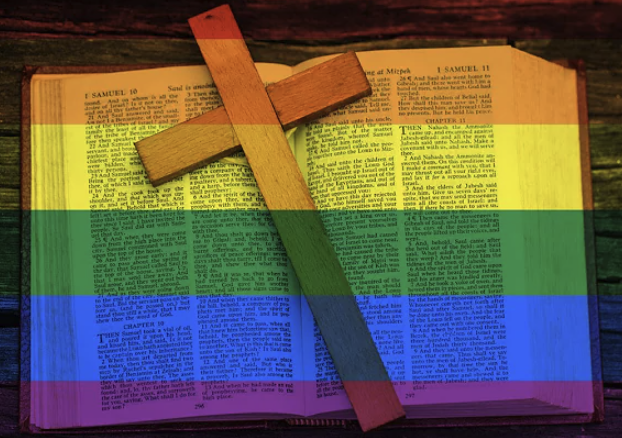Is it good for religion-beat journalists to ask questions that they already know specific religious leaders will not want to answer?
I would say, “Yes.” I’ve been saying that my entire journalism career.
I believe that it is appropriate to ask conservative religious leaders questions that they don’t want to answer. I also think it’s appropriate to ask liberal religious leaders questions that they don’t want to answer.
Oh, and I think it’s especially important for journalists to ask “establishment” religious leaders questions that they don’t want to answer. In my experience, the “establishment” folks are usually ecclesiastical bureaucrats who have financial reasons to avoid hard questions, because they need to keep cashing checks from people on both sides of lingering doctrinal disputes. Thus, they say, “Peace, peace!”
This brings me to a San Diego Union-Tribune article with this headline: “San Diego Nazarene pastor fired for same-sex marriage stance.” GetReligion readers will not be surprised to learn that this is a totally one-sided story, containing zero heretical small-o orthodox voices that are allowed to defend the denomination’s affirmation of two millennia of Christian teachings on marriage and sexuality.
Did the newspaper even bother to contact the heretics? I don’t know.
Did the newspaper contact mainstream Nazarene leaders? Did they decline to answer questions that they don’t want to answer, (a) because they don’t trust the newspaper or (b) they really want this issue to go away, as if there was a chance in hades that this could happen in the California media climate?
We will come back to this news story, even though there is nothing unusual about it. Like I said, there is no evidence that small-o orthodox Nazarene leaders were asked hard questions (Will you ask Nazarene college faculty members to vote on whether they support church teachings?), if they were contacted at all. And there is no evidence that progressive Nazarene leaders were asked hard questions (Who owns your campus?), since the goal of the story appears to have been to back their cause.
Before we return to the Union-Tribune press release, let’s remember some words of wisdom from the Baptist left, care of Mercer University ethicist David Gushee, who was once a small-o orthodox voice who then converted to mainline American doctrine:



